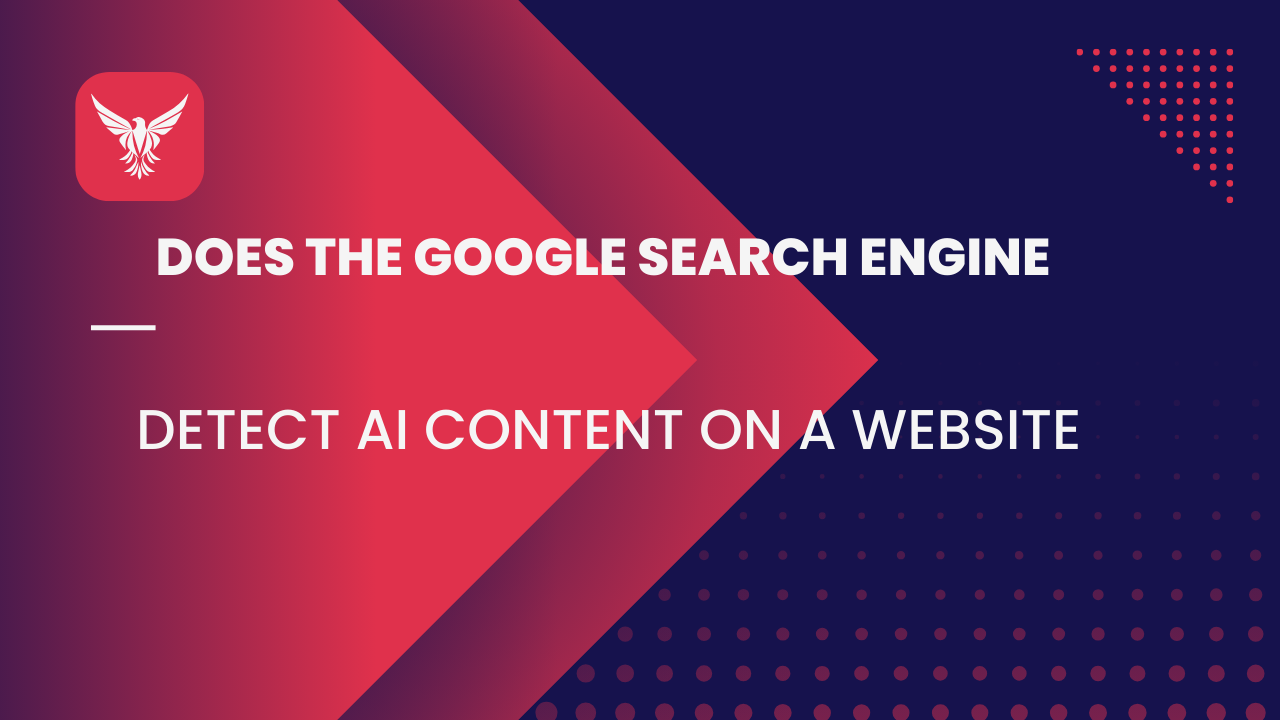As of my last knowledge update in January 2022, Google’s search engine does not explicitly detect AI-generated content on a website. However, it’s important to note that search engine algorithms are continually evolving, and my information might be outdated. Let’s explore the current state of AI content detection on Google and considerations for website owners and content creators.
1. Google’s Approach to AI-Generated Content:
Google’s algorithms primarily focus on providing users with high-quality, relevant, and trustworthy content. While Google does not have a specific mechanism to detect whether content is generated by AI, it assesses content based on various factors, including relevance, user experience, and authenticity.
2. Content Quality Signals:
Google’s algorithms are designed to evaluate content based on quality signals such as readability, coherence, and relevance to user queries. Regardless of whether content is generated by AI or authored by humans, Google aims to prioritize content that provides value to users and aligns with their search intent.
3. User Engagement Metrics:
Metrics related to user engagement, such as bounce rate, time on page, and click-through rate, play a crucial role in determining the quality of content. If AI-generated content fails to engage users or lacks relevance, it may be reflected in these metrics, potentially impacting search rankings.
4. Natural Language Processing (NLP):
Google employs advanced natural language processing (NLP) algorithms to understand the context and semantics of content. While these algorithms are not explicitly designed to detect AI-generated content, they contribute to Google’s ability to assess the relevance and coherence of the text.
5. Duplicate Content Considerations:
Duplicate content, whether generated by AI or copied from other sources, can be a concern. Google aims to provide diverse and original content in its search results. If AI-generated content closely resembles existing content, it may be subject to scrutiny, and Google may favor the original source.
6. Focus on E-A-T:
Google emphasizes the principles of Expertise, Authoritativeness, and Trustworthiness (E-A-T) when evaluating content. AI-generated content may lack the human touch and real-world expertise, which can impact its perceived authority and trustworthiness.
7. Evolving Algorithms:
As technology advances, search engine algorithms continue to evolve. Google may introduce new features or adjustments to better understand and evaluate different types of content. While there is no explicit detection mechanism for AI content, future algorithm updates might take AI-generated content into consideration.
Considerations for Website Owners:
1. Transparency in Content Creation:
Website owners should be transparent about the use of AI tools in content creation. Clearly disclose if AI has been used to generate specific content sections or articles. Transparency builds trust with users and can also be a positive factor for search engine rankings.
2. Emphasis on Value and Relevance:
Regardless of the content creation method, the primary focus should be on providing value and relevance to users. Content, whether AI-generated or human-authored, should address user queries, offer insights, and meet the expectations of the target audience.
3. User-Centric Approach:
Prioritize a user-centric approach in content creation. Understand the needs of your audience, address their pain points, and provide solutions. Content that genuinely helps users is more likely to be well-received by both visitors and search engines.
4. Diversification of Content:
Diversify your content strategy by incorporating various content types, including articles, infographics, videos, and interactive elements. A diverse content portfolio not only caters to different user preferences but also enhances the overall user experience.
5. Regular Content Audits:
Conduct regular content audits to identify and address issues related to content quality, relevance, and uniqueness. This practice helps in maintaining a high standard of content across your website.
6. Monitoring User Engagement Metrics:
Keep a close eye on user engagement metrics to understand how visitors interact with your content. Analyze bounce rates, time on page, and other relevant metrics to identify areas for improvement.
7. Stay Informed on SEO Best Practices:
Stay informed about the latest SEO best practices and algorithm updates. While there might not be specific guidelines for AI-generated content, adhering to general SEO principles ensures a solid foundation for search engine visibility.
Conclusion:
In summary, as of my last knowledge update, Google’s search engine does not have a specific mechanism to detect AI-generated content. However, the evaluation of content quality, relevance, and user engagement remains fundamental to search rankings. Website owners should prioritize transparency, value creation, and a user-centric approach in their content strategies. As technology continues to advance, it’s advisable to stay informed about developments in search engine algorithms and adapt strategies accordingly. Keep in mind that the information provided here is based on the status as of January 2022, and there may have been changes or updates since then.

Can you be more specific about the content of your article? After reading it, I still have some doubts. Hope you can help me.